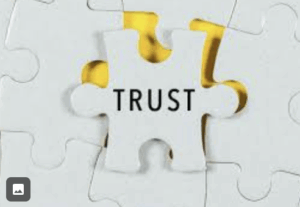Do you ever find yourself pulling away when someone gets too close—or needing constant reassurance to feel secure in a relationship? These patterns may be shaped by something called your attachment style—a framework that reflects how you learned to relate to others emotionally, starting in childhood.
Understanding your attachment style can offer powerful insights into your behaviors, emotional triggers, and relationship dynamics. At Kingston & Co Counseling, we often work with individuals and couples to explore attachment and how it impacts their connections.
Here’s a breakdown of the four main attachment styles and how they typically show up in adult relationships.
1. Secure Attachment
What it looks like in relationships:
People with a secure attachment style are generally comfortable with closeness, able to communicate effectively, and trust their partner without becoming overly dependent or avoidant. They’re able to balance intimacy and independence, navigate conflict with empathy, and support their partner while also taking care of their own needs.
Securely attached individuals often had consistent, responsive caregiving growing up. But even if you didn’t, it’s entirely possible to build secure attachment as an adult—with time, awareness, and support from therapy.
If you and your partner want to strengthen emotional safety and trust, couples therapy can help both of you move toward more secure connection—regardless of your starting point.
2. Anxious Attachment
What it looks like in relationships:
People with an anxious attachment style often crave closeness but fear abandonment. You might frequently worry that your partner is pulling away, need reassurance, or feel especially sensitive to changes in tone, response time, or affection.
While these feelings are valid, they can lead to patterns like clinging, over-texting, or emotional outbursts when feeling ignored or rejected. Over time, this can create tension in the relationship—especially if your partner doesn’t share the same attachment needs.
In individual therapy, we help clients understand these patterns, build emotional regulation skills, and increase self-worth—so you can feel secure from the inside out.
3. Avoidant Attachment
What it looks like in relationships:
If you tend to value independence over emotional closeness, you might have an avoidant attachment style. These individuals often feel overwhelmed by too much intimacy and may shut down or withdraw emotionally when things get intense.
Common behaviors include:
- Pulling away when conflict arises
- Keeping emotions to yourself
- Feeling uncomfortable with vulnerability
- Struggling to express needs or ask for help
Avoidant attachment often develops when caregivers were emotionally distant or discouraged vulnerability. Therapy can help you explore these experiences and develop new tools for staying present and connected in your relationships.
4. Disorganized Attachment
What it looks like in relationships:
Disorganized attachment combines both anxious and avoidant behaviors—often resulting from early trauma, abuse, or unpredictable caregiving. In adult relationships, this might look like fearing intimacy but also fearing rejection, swinging between closeness and withdrawal, or having difficulty trusting both yourself and others.
People with this style may deeply want connection but find it hard to feel safe in relationships. Emotional regulation can be a major challenge, as well as developing a clear sense of self in the context of partnership.
At Kingston & Co Counseling, our therapists can provide trauma-informed support to help individuals with disorganized attachment understand and rewire the survival strategies they’ve developed. Individual therapy is often the first step in creating more safety and clarity in your relationships.
How Therapy Helps with Attachment Styles
The good news? Attachment styles are not fixed. With awareness and consistent support, you can begin to shift your relational patterns—toward more secure, balanced, and fulfilling connections.
Whether you’re exploring this on your own or with a partner, therapy offers a judgment-free space to:
- Recognize your emotional triggers
- Learn to communicate needs clearly
- Develop self-compassion
- Build emotional safety in relationships
Start Building More Secure Relationships Today
Your attachment style is just one part of your story—it doesn’t define you. With the right support, you can learn to break unhelpful patterns, connect more deeply, and build lasting trust in your relationships.
Ready to explore your attachment style and what it means for your relationship health? Contact Kingston & Co Counseling today to schedule a session with one of our compassionate therapists.







